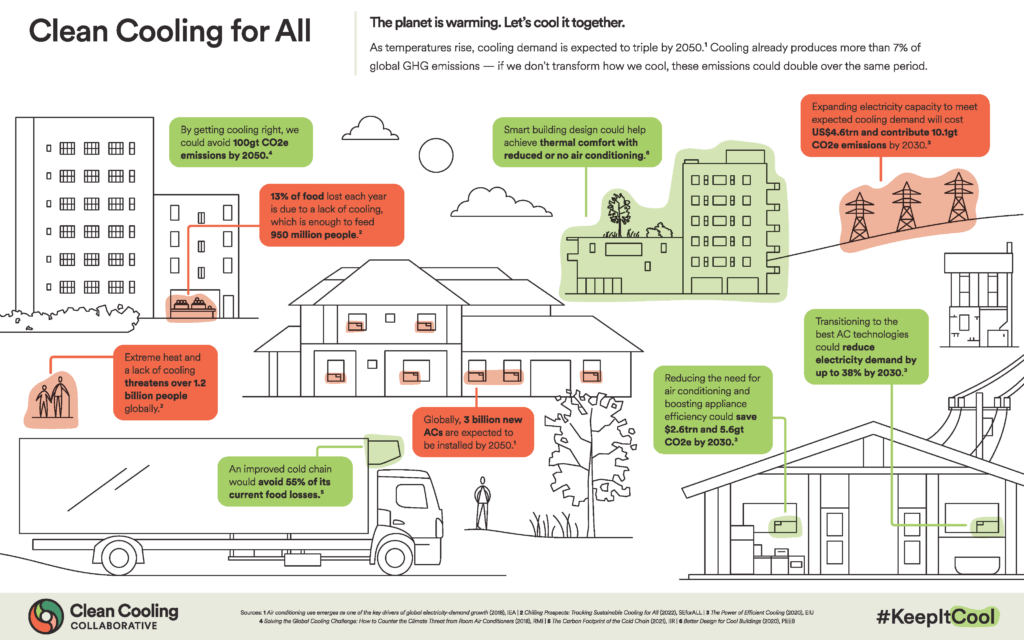As global temperatures rise, demand for cooling is expected to triple by 2050.
Cooling — primarily air conditioning and refrigeration — currently produces more than 7% of the world’s greenhouse gas emissions. Without clean cooling technologies and a full renewable energy transition, these emissions could double by mid-century.
However, if we get cooling right, we could avoid 100 gigatons of CO2e over the coming decades. That’s equivalent to two full years of today’s total global greenhouse gas emissions.
Cooling isn’t only a pivotal climate issue, it’s also an equity and development issue. As extreme heat becomes more widespread, access to cooling will help safeguard the health and wellbeing of billions of people around the world, as well as keep our foods and critical medicines safe and effective.
Clean Cooling Collaborative
Clean Cooling Collaborative (formerly the Kigali Cooling Efficiency Program) is an initiative of ClimateWorks focused on transforming the cooling sector and making efficient, climate-friendly cooling accessible for all.
To realize the many benefits of universal access to clean cooling, the initiative is working to:
Avoid and reduce the need for mechanical cooling through improved building design, urban planning, and other passive cooling techniques.
Optimize and improve cooling technologies and how they’re used to be more energy efficient, climate-friendly, and grid friendly.
Increase access to efficient, climate-friendly cooling for low-income and at-risk communities.
While Clean Cooling Collaborative is a global program, its current grantmaking will largely occur in the four regions that are projected to contribute 75% of cooling-related emissions between now and 2050: China, India, Southeast Asia, and the United States.

The importance of clean cooling for all
In a rapidly warming world, cooling is vital for human health, safety, and prosperity. It makes buildings comfortable to live, work, and learn in; it ensures food safety and reduces food waste; it provides necessary storage for medications and vaccines; and it is integral for manufacturing, industry, transportation, and other sectors.
Despite its importance to many aspects of our daily lives, cooling is frequently overlooked when discussing climate mitigation and adaptation strategies.
Luckily, there are several existing solutions that can help reduce the sector’s energy consumption and greenhouse gas emissions while also expanding access to cooling for those who currently lack it.




